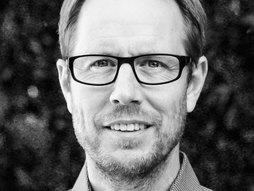What are the ethics of using young blood to reverse the effects of aging?
In June, biologist Tony Wyss-Coray described “an absolutely amazing development in aging research.” The implications are huge--and troubling.
Continue reading
Professor of neurology at Stanford, Tony Wyss-Coray oversees an eponymous lab which studies immune and injury responses in aging and neurodegeneration.
Wyss-Coray initially studied at the Institute of Clinical Immunology at the University of Bern in Switzerland, but he now lives and works in California. At Stanford since 2002, he's also a health scientist at the Veterans Affairs Palo Alto Health Care System. Deeply interested in figuring out ways to combat diseases such as Alzheimer's, he serves on the scientific advisory board for the Alzheimer Research Consortium and on the international advisory board for Advances in Clinical and Experimental Medicine. In 2013, he was given a Transformative Research Award by the director of the National Institutes of Health.
“In October 2014, Tony Wyss-Coray launched the first human trial of young blood. At Stanford School of Medicine, infusions of blood plasma from young people are being given to older people with Alzheimer’s disease... It is the greatest test yet for the medical potential of young blood.” — The Guardian
In June, biologist Tony Wyss-Coray described “an absolutely amazing development in aging research.” The implications are huge--and troubling.
Continue readingFormula E racing, the darknet, a potential fountain of youth, and beheadings. At TEDGlobal>London — a two-session event curated and hosted by Bruno Giussani on June 16, 2015, at the Royal Institution of Great Britain — the talks ranged from a wildly hopeful future to stern warnings about the present. Enjoy these recaps of the talks in […]
Continue reading